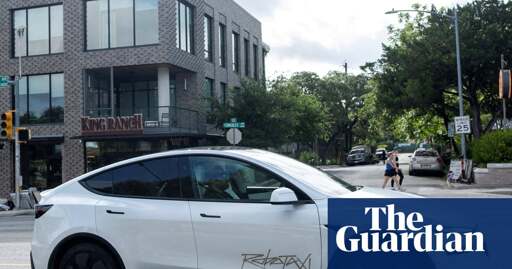The company’s rollout of its new driverless cars has gotten off to a wobbly start – and rival Waymo remains well ahead
After years of promising investors that millions of Tesla robotaxis would soon fill the streets, Elon Musk debuted his driverless car service in a limited public rollout in Austin, Texas. It did not go smoothly.
The 22 June launch initially appeared successful enough, with a flood of videos from pro-Tesla social media influencers praising the service and sharing footage of their rides. Musk celebrated it as a triumph, and the following day, Tesla’s stock rose nearly 10%.
What quickly became apparent, however, was that the same influencer videos Musk promoted also depicted the self-driving cars appearing to break traffic laws or struggle to properly function. By Tuesday, the National Highway Traffic Safety Administration (NHTSA) had opened an investigation into the service and requested information from Tesla on the incidents.



There’s also the point that, while AI has gotten quite far, the human brain is still fairly superior at accurately interpolating and interpreting limited information. This may have changed in the past year or two, but my impression is that humans are still far better than machines at handling new or “corrupted” information, like driving in poor visibility, or suddenly having road markings disappear, etc.